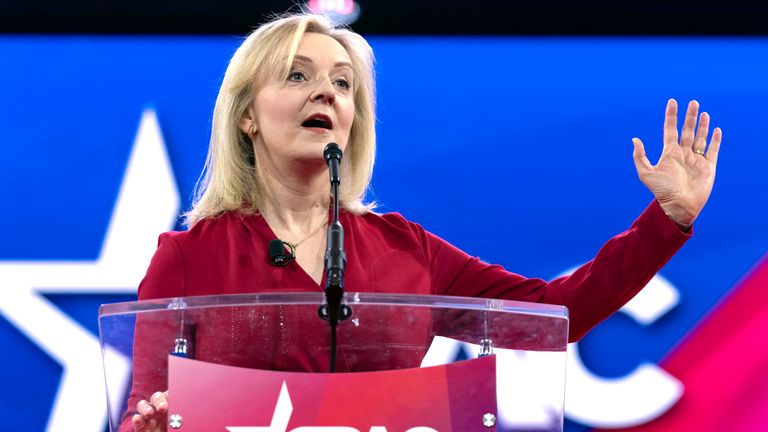Rishi Sunak's flagship smoking ban bill passes first hurdle despite cabinet opposition
Labour supports the prime minister's policy to phase out smoking. But several senior Tories, including former prime ministers and a senior cabinet minister, have opposed the government's plan.
Tuesday 16 April 2024 22:56, UK
Rishi Sunak's flagship smoking ban has passed its first parliamentary hurdle despite opposition from within his cabinet - as Labour backed the bill.
Mr Sunak wants to raise the legal age to buy cigarettes annually in a bid to phase out the habit, as well as restrict the sales of vaping products.
The proposals would make it illegal to sell tobacco products to anyone born after 1 January 2009 - with the prime minister hoping to create a "smoke-free" generation.
Conservative MPs were given a free vote in the Commons this evening, meaning they were allowed to oppose the government if they wished without facing repercussions.
The House of Commons voted in favour of the plan by 383 votes to 67.
Follow the latest politics news
There was a sizeable Tory rebellion and a significant number of abstentions.
Kemi Badenoch, the business and trade secretary and a former leadership contender, said she would not support the legislation before the vote.
Ms Badenoch - who has also been tipped to run to replace Mr Sunak if he loses the next election - said on social media that while she agrees with the plan's intentions, giving adults "born a day apart... permanently different rights" is an issue with the policy - as is the practicality of asking businesses to enforce it.
Other ministers who voted against the bill included Andrew Griffith, Steve Baker, Julia Lopez, Lee Rowley and Alex Burghart, as well as Conservative deputy chair Jonathan Gullis.
In total, 57 Conservative MPs voted against Mr Sunak's plans, with 106 abstaining.
One such abstention was Anne Marie-Trevelyan, a Foreign Office minister, who said ahead of time that she would not support the Tobacco and Vapes Bill.
Another was Commons leader - and another party leadership hopeful - Penny Mordaunt.
Former immigration minister Robert Jenrick was one of those former ministers who signalled beforehand his intention to vote against the government's proposed smoking ban.
"I believe in personal freedom," he posted on X. "Let's educate more and ban less."
Other senior Conservatives - like former prime minister Liz Truss, former business secretary Sir Jacob Rees-Mogg and former home secretary Suella Braverman - all said before the vote they did not support the bill, and they all voted against it.
Another former Tory prime minister, Boris Johnson, has also criticised the plan - calling it "mad" and "nuts".
Labour MPs were whipped to support the prime minister's plans, with shadow health secretary Wes Streeting speaking in support of the policy in the Commons debate ahead of the vote.
Read more:
How would the ban work?
The arguments within the Conservative Party centred around whether the ban impinged on civil liberties at the cost of health.
Some, like current Health Secretary Victoria Atkins and former office holder Sajid Javid, said smoking removes choice as young people get addicted and cannot choose to stop - before noting the high costs to the NHS caused by smokers.
Smoking kills about 80,000 people a year and costs the NHS and the economy an estimated £17bn annually.
The other side of the argument - put forward by former prime minister Ms Truss - said the bill would limit people's freedoms, and trying to protect people from themselves is problematic, before warning of potential further bans on products like alcohol and sugar.
Mr Sunak announced his plans at his party's conference in Manchester last year, saying it would mean someone aged 14 would "never legally be sold a cigarette and that they and their generation can grow up smoke-free".
On vapes, he stated his desire to restrict the way they are marketed, including looking at flavours, packaging displays and disposable vapes.
At the time, a similar plan for a rising smoking age ban in New Zealand was touted as an example for the UK to follow - but this restriction was scrapped before it came into force in the country.
👉 Listen above then tap here to follow the Sky News Daily wherever you get your podcasts 👈
Today marked the second reading of the smoking bill, and so the first time the whole House of Commons voted on it.
It will now be considered and potentially amended by MPs, before also going through scrutiny in the House of Lords.




